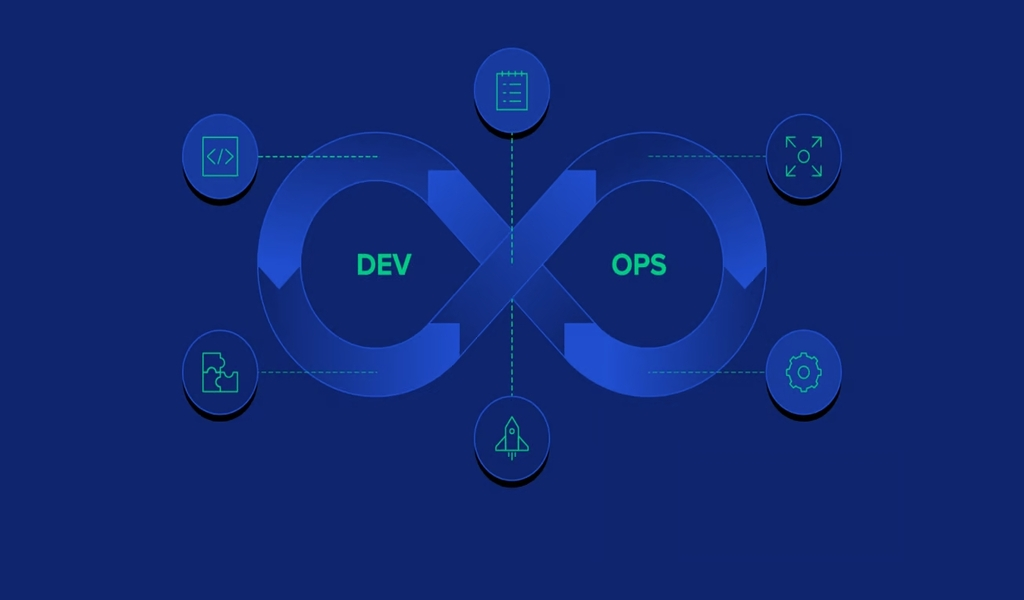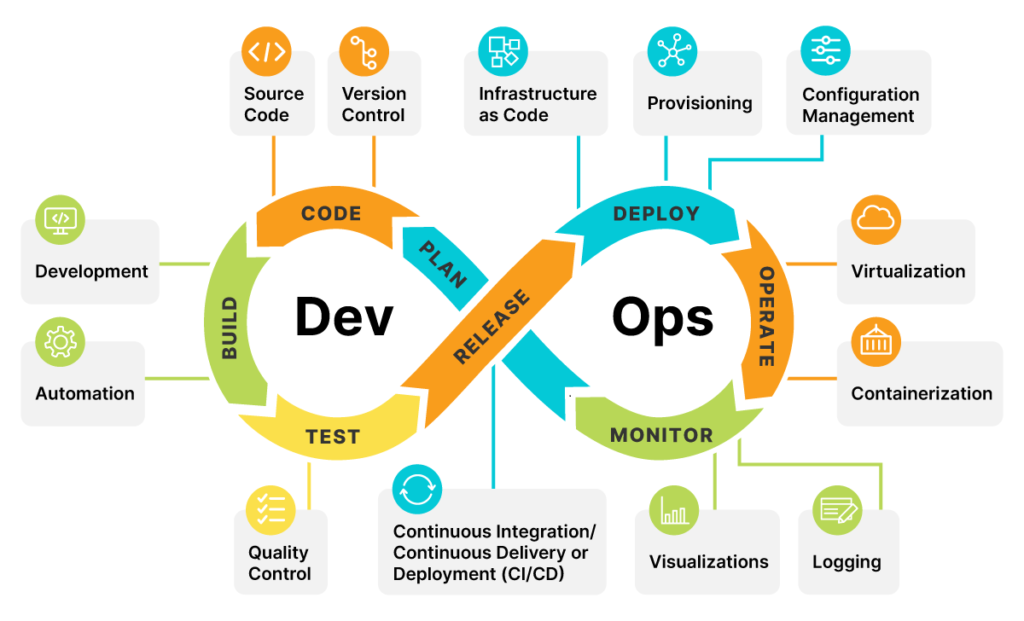Tech
Understanding DevOps: The Integration Of Development And Operations

(CTN NEWS) – In today’s fast-paced digital world, businesses and organizations are constantly seeking ways to increase their efficiency, speed, and reliability.
One of the most effective methods to achieve this is by adopting DevOps. How does DevOps work and what is it exactly?
This article will provide a comprehensive overview of DevOps, its benefits, and best practices for its implementation.
Introduction

As software development and IT operations have traditionally operated independently, a growing need for closer collaboration and integration has been growing.
This has led to the rise of DevOps, a cultural and technological movement that focuses on enhancing collaboration and communication between development and operations teams.
DevOps is not just a set of tools but rather a philosophy and set of principles that guide the entire software development lifecycle.
What is DevOps?
DevOps is a combination of “development” and “operations” that refers to the integration of software development and IT operations.
DevOps is a methodology that aims to streamline the software development process by improving collaboration and communication between development and operations teams, automating and optimizing workflows, and continuously monitoring and improving performance.
The History of DevOps

The origins of DevOps can be traced back to the early 2000s when Agile software development methodologies were gaining popularity.
Agile emphasizes the importance of collaboration, flexibility, and iterative development.
However, as the Agile methodology focused primarily on the development stage of software delivery, it became clear that a similar approach was needed for operations.
The term “DevOps” was coined in 2009 by Patrick Debois, a Belgian software developer, and consultant, who organized the first DevOpsDays conference.
Since then, DevOps has become a widely adopted methodology across industries and organizations.
The DevOps Philosophy and Principles
The DevOps philosophy is centered around collaboration, communication, and automation. The key principles of DevOps include:
- Continuous Integration: Developers frequently integrate code changes into a shared repository to ensure that the changes are tested and validated quickly.
- Continuous Delivery: Changes to code can be released at any time with the help of automated testing, builds, and deployments.
- Infrastructure as Code: Infrastructure is treated as code and managed using the same tools and processes as application code.
- Monitoring and Logging: Continuous monitoring and logging of the system are used to identify and fix issues before they become significant problems.
- Collaboration and Communication: Development and operations teams work together closely to facilitate continuous feedback, collaboration, and problem-solving.
The DevOps Lifecycle

The DevOps lifecycle is a set of stages focused on improving collaboration and automation between development and operations teams. The stages of the DevOps lifecycle include:
- Plan: This stage involves planning and defining the software development project’s scope, objectives, and requirements.
- Develop: The development stage involves coding, testing, and reviewing software changes to ensure that they meet the defined requirements.
- Test: This stage involves testing the developed software to ensure that it meets the desired quality standards.
- Deploy: The deployment stage involves releasing the developed software changes to the production environment.
- Operate: The operation stage involves monitoring and managing the deployed software to ensure it performs as expected.
- Monitor: This stage involves continuous monitoring of the system to identify any issues and quickly resolve them.
- Feedback: The feedback stage involves gathering feedback from users and stakeholders to continuously improve the software.
Benefits of DevOps
DevOps offers numerous benefits to organizations, including:
- Faster time to market: DevOps enables faster and more frequent releases, allowing organizations to respond more quickly to changing market demands.
- Improved collaboration and communication: DevOps facilitates better collaboration and communication between development and operations teams, leading to increased productivity and better quality software.
- Enhanced reliability and scalability: DevOps processes help to ensure that software is reliable and can scale to meet changing demand.
- Continuous delivery: With DevOps, the software can be delivered to production environments quickly and frequently, reducing downtime and improving overall software quality.
- Improved customer satisfaction: With faster delivery and higher quality software, customers are more satisfied with the products and services provided by the organization.
Best Practices for DevOps Implementation
To effectively implement DevOps, organizations should consider the following best practices:
- Focus on culture: DevOps is as much about culture as it is about technology. Organizations must foster a culture of collaboration, communication, and continuous improvement to effectively implement DevOps.
- Automate everything: Automating as many tasks as possible can help to reduce errors and speed up the software development process.
- Emphasize testing and quality: Testing and quality assurance are critical components of DevOps, and organizations must prioritize them throughout the software development lifecycle.
- Use the right tools: The DevOps ecosystem is vast, and organizations must choose the right tools and technologies to meet their specific needs.
- Monitor everything: Continuous monitoring of the system is critical for identifying issues and ensuring that software is performing as expected.
Common Tools and Technologies Used in DevOps

The DevOps ecosystem is vast, and numerous tools and technologies can be used to implement DevOps. Some of the most common tools and technologies used in DevOps include:
- Version Control Systems (VCS): VCSs like Git and SVN are used to manage code changes and enable collaboration between development teams.
- Continuous Integration and Continuous Delivery (CI/CD) tools: Tools like Jenkins and Travis CI automate the software delivery process, making it faster and more reliable.
- Infrastructure as Code (IaC) tools: IaC tools like Terraform and Ansible enable infrastructure to be managed and provisioned as code, enabling greater automation and control.
- Monitoring and Logging tools: Tools like Nagios and Splunk enable continuous monitoring and logging of the system to identify issues and quickly resolve them.
- Containerization tools: Tools like Docker and Kubernetes enable software to be packaged and deployed in containers, enabling greater scalability and portability.
Challenges and Risks Associated with DevOps
While DevOps can bring numerous benefits, some challenges and risks are associated with its implementation. Some of the common challenges and risks include:
- Resistance to change: Adopting DevOps often requires significant cultural and organizational changes, and some team members may resist these changes.
- Complexity: The DevOps ecosystem is vast, and implementing DevOps can be complex, especially for new organizations.
- Security risks: Automating tasks and processes can introduce new security risks if not properly managed and secured.
- Integration challenges: Integrating different tools and technologies can be challenging and may require significant effort and expertise.
- Lack of expertise: Adopting DevOps often requires significant expertise in tools, technologies, and methodologies that some organizations may not have.
Conclusion
DevOps is a powerful methodology that can enable organizations to improve collaboration, communication, and automation between development and operations teams.
To ensure successful DevOps implementation, organizations must focus on fostering a culture of collaboration and continuous improvement, automate as many tasks as possible, prioritize testing and quality assurance, choose the right tools and technologies, and continuously monitor the system.
With the right approach, DevOps can bring numerous benefits to organizations, making it an essential methodology for modern software development.
FAQs
- What is the difference between DevOps and Agile? DevOps and Agile are software development methodologies emphasizing collaboration, communication, and continuous improvement. However, DevOps focuses more on the collaboration between development and operations teams, while Agile focuses on collaboration between development teams and stakeholders.
- What are the key principles of DevOps? The key principles of DevOps include culture, automation, measurement, and sharing. These principles emphasize the importance of collaboration, communication, continuous improvement, and automation in software development.
- What are the benefits of using DevOps for software development? Adopting DevOps can bring numerous benefits to organizations, including faster time to market, improved collaboration and communication, enhanced reliability and scalability, continuous delivery, and improved customer satisfaction.
- What are some common tools and technologies used in DevOps? Some common tools and technologies used in DevOps include version control systems, continuous integration and delivery tools, infrastructure as code tools, monitoring and logging tools, and containerization tools.
- What are some of the risks associated with implementing DevOps? Some common risks associated with implementing DevOps include resistance to change, complexity, security risks, integration challenges, and lack of expertise. However, these risks can be mitigated by adopting best practices and ensuring that the implementation is well-planned and well-executed.
RELATED CTN NEWS:






























